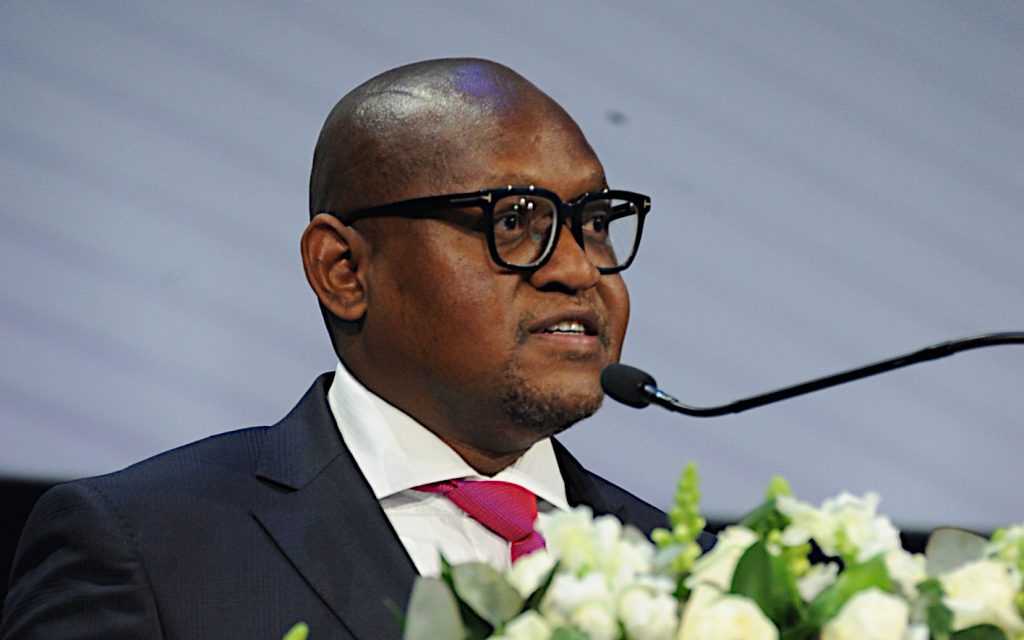Ryan Ding, Global President Huawei Enterprise Group
South Africa is well-positioned to assume the top spot as Africa’s leading digital economy. With its 85% mobile broadband penetration, growing cloud and artificial intelligence capabilities and promising developments in the energy sector, the country is poised to bridge not only the digital divide, but also the social and economic gaps still prevalent in society today.
It is possible to close the gap and empower people to ensure that no one is left behind as the digital revolution continues to pick up speed. This was the message and commitment at the 2022 Huawei Eco-Connect conference held in Sandton in early July. Speaking from Shenzhen, China, Global President of the Huawei Enterprise Business Group, Ryan Ding, vowed that the investments from the company that have seen more than South African 3 000 schools and 600 hospitals connected since the start of the Covid-19 pandemic would continue. “Huawei is actively investing in South Africa and will continue to focus on ICT and digital innovation to facilitate digital transformation,” he said.
 Leo Chen, President Huawei Southern Africa
Leo Chen, President Huawei Southern Africa
President of Huawei Southern Africa Region, Leo Chen, said it would require collaboration, commitment, and a long-term vision for the country to assume its role as the continental leader. “South Africa is well-positioned to make the transition — the global digital economy is growing twice as fast as GDP, and Africa’s digital economy is also poised to explode,” he explained, adding that by 2025, one in six of the world’s internet users will be from Africa.
If the country’s potential is to be realised and the South African government’s plans for the digital economy to make up 50% of GDP by 2025 are to be successful, then extensive investment in innovation and digital skills development will be needed from all sectors of society. “We need to work together, just like we worked together in the past two years,” he said. “We want our partnerships to help South African companies build South African solutions.”
 Philly Mapulane, Deputy Minister, Department of Communications and Digital Technologies
Philly Mapulane, Deputy Minister, Department of Communications and Digital Technologies
Deputy Minister of Communications and Digital Technologies Philly Mapulane acknowledged the impact that Huawei has had on the digital landscape of South Africa. “Our department is acutely aware of the need for digital transformation in both the private and public sectors,” he said, adding that Huawei’s investments in digital infrastructure and skills development have blazed a trail for others to follow. “As the Department of Communications and Digital Technologies, we would like to take this opportunity to appreciate and thank Huawei for its continuous partnership and involvement in South Africa over the years.”
These partnerships are crucial to achieving digital transformation, explained the Department of Communications and Digital Technologies Acting Director-General Thulisile Manzini: “Digital transformation is a massive task that cannot be done by government alone. We rely on our partnerships to ensure that digital transformation reaches every corner of the country and is not only reserved for the privileged few.”
In June this year, the first phase of the State Information Technology Agency (SITA) innovation centre was launched in partnership with Huawei. The innovation centre aims to foster ICT talent and grow and empower SMMEs in the sector.
Huawei South Africa CEO Spawn Fan said this commitment to partnership is evident when one looks at what the company has achieved since it first arrived in the country in 1996. “We’ve supported South African operators to build more than 2 800 5G base stations and have more than 1 000 registered SMME partners.” He added that a further R100-million will be invested in 1000 startups over the next three years, through its Cloud Spark programme. “We need to enable local partners and people to get the most advanced technology.”
Initiatives like Huawei’s Open Lab, Joint Innovation Centre and POC Lab exist to bolster innovation and empower South Africans to develop local solutions to local problems. Huawei’s Seeds for the Future, ICT Academy Programme and 4IR talent training initiatives tie in directly with the government’s vision for South Africa to be the number one economy in Africa across a number of technological fields including mobile connectivity, mobile broadband, cloud, software development and talent building.
Speaking at the conference, Vumatel CEO Dietlof Mare told delegates that Huawei technologies and solutions have been crucial to its ability to connect 1.5-million South African homes with fibre, adding that the launch of its prepaid fibre offering is crucial to closing gaps in access and bridging the digital divide. — Jamaine Krige